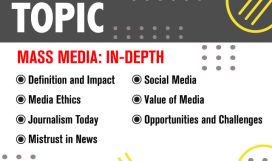Predictive Medicine

Predictive medicine is a field of medicine that entails predicting the probability of disease and instituting preventive measures to either prevent the disease altogether or significantly decrease its impact on the patient. With the advent of technology like artificial intelligence and machine learning, there are several benefits that mankind can reap. One such field is healthcare and specifically – Predictive medicine. Predictive medicine is based on the concept where medical professionals by using various techniques identify the issues before the patient falls sick or faces any medical complication. Predictive medicine is believed to be a better solution to how people are diagnosed and treated. It is true that it might cost a little more upfront, but it could save the healthcare industry a huge amount of money eventually.
Predictive medicine can also open other avenues which may lead the healthcare industry radically redefine itself. As new opportunities arise for health maintenance and prevention, so too will the number of services that are available to us. Genomics, Proteomics, Cytomics and Genetics are important approaches to predictive medicine. At present, genetic testing is the most powerful way of identifying potential diseases prior to any actual symptoms developing. Predictive medicine can also help discover diseases that may affect children when they are not even born. This can help the parents to adopt preventative measures and modify their behaviours to avoid potential risk factors.
The overall aim of predictive medicine is to flag risk factors so that physicians and patients can work together to reduce the chances of future problems. For example, patients with a greater risk of diabetes and coronary heart disease could receive more regular testing to get their insulin levels or heart conditions checked. The goal is to use predictions and preventative medicine to give people the best possible quality of life. Technological tools are helping medical professionals to assess patients’ risk of contracting a whole host of diseases and conditions. This also allows them to introduce medicines and therapies that are tailored to the needs of the patients. Predictive medicine can thus become personalised medicine and can be instrumental in sustaining health in an efficient way.
Predictive medicine is suggested to provide new knowledge of human genetics and is likely to transform medical practice. With possibilities of genetics leading to the classification of diseases based on the underlying genetics or biochemistry, rather than by symptoms. Predictive medicine will also rely on genetic information which will help in identifying people who are likely to respond to drugs or to be harmed by them. Furthermore, Genetic variation will be a new ‘genetic risk factor’, permitting monitoring and early treatment or, perhaps prevention, of an increasing proportion of common, multifactorial diseases, such as coronary heart disease, hypertension, stroke, cancer, diabetes, and Alzheimer’s disease.
In this unit, you will learn how advances in genetics could change the way in which diseases are diagnosed and managed. The advent of predictive medicine, based on more detailed DNA profiling of individual genotypes using technologies like gene chips, rather than screening for one gene at a time, may shift the relationship between doctor and patient. People will be seeking advice on how to manage their susceptibilities or genetic risks, rather than looking for treatment for an already existing disorder.
Lessons
With predictive medicine, it is possible to predict the risk of diseases based on unique data of a patient which includes factors like – their lifestyle, previous medical history, and environmental and genetic data.
Test your knowledge on Basic Facts about Predictive Medicine
Despite the benefits of predictive medicines, realistically it is not a panacea to all medical problems. With predictive medicines, there is a risk of false positives.
Test your knowledge on known issues of Predictive Medicine
Research suggests there are two broad classes of reaction: activism and fatalism. Activists try and take control, and strive to minimise their risk by diet, exercise, or drugs, and by avoiding smoking. Fatalists, on the other hand, hear the prediction as something they can do little about, and decide they will indulge freely in all the things health-educators say are bad for them because they are going to get sick anyway.
Test your knowledge of Possible Solutions to Predictive Medicine
Summary%2C%20Vocabulary%20and%20Debate
Here is a list of words and definitions related to predictive medicine.
Quiz on predictive medicine vocabulary
Additional%20Resources
Quiz on Predictive Medicine Video Links
Essay question on Predictive Medicine






